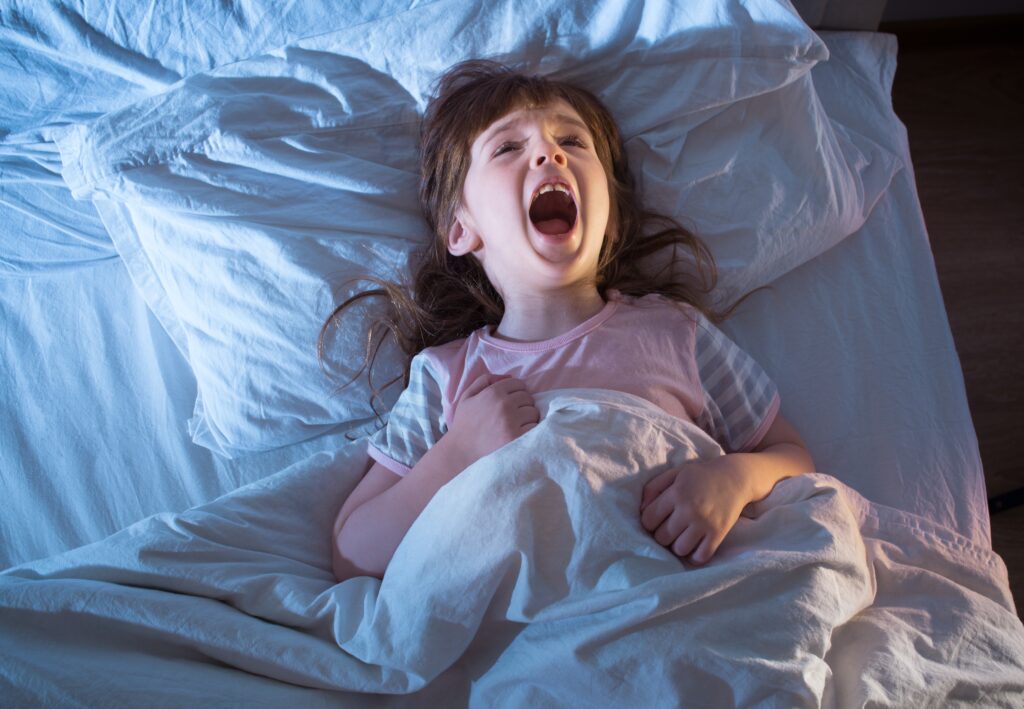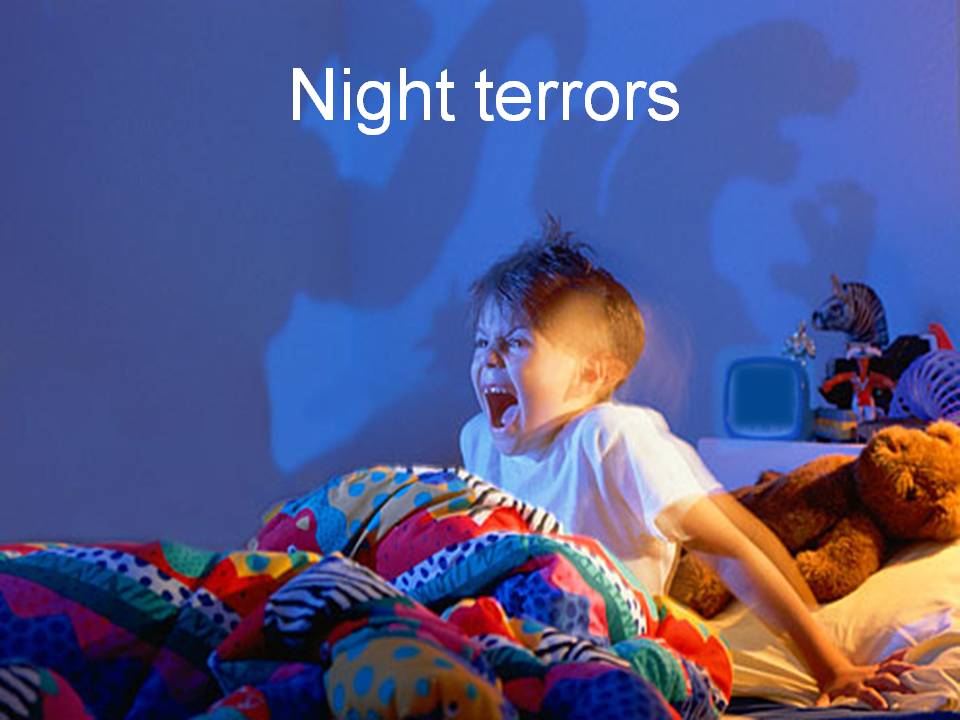Understanding and Managing Night Terrors in Children: A Comprehensive Guide

A night terror is when a sleeping child suddenly appears to “wake up” in a state of panic, agitation and terror. They often scream, kick, lash out and run about inconsolably. They may have other symptoms such as a racing heart, sweating and dilated pupils.
About 3% of children experience night terrors, usually between the ages of 18 months to seven years.
Night terrors usually occur in the first few hours of sleep, while your child is in deep non-rapid-eye-movement (NREM) sleep.
Ironically, while night terrors may leave you feeling anxious, they do not disturb your child. Although they may look terrified, your child is usually totally unaware of what is happening as they are deeply asleep.
Night terrors rarely last longer than ten to fifteen minutes, and your best response is simply to keep your child safe, wait until the episode passes, and then guide them back to bed. Do not attempt to wake your child or to offer comfort or reassurance as they are more likely to be upset if woken.
What causes night terrors and how to mange them:
Please be reassured, that as their nervous system develops most children will grow out of night terrors, especially if they experience them infrequently.
Sleep deprivation
- A sleep-deprived child has a greater need for very deep sleep when these events happen. Check that your child is getting a good amount of sleep for their age. You may also want to revisit your bedtime routine to ensure they can fall asleep quickly and easily.
Irregular sleep schedules
- Regular daytime naps and consistent bed- and wake-up times will help to stabilise your child’s sleep pattern
Stimulants
- Avoid food and drink containing caffeine and/or sugar as both can disturb your child’s sleep.
Stressful events and illness
- Both can lead to disturbed sleep. It is the lack of sleep that acts as a trigger for the night terror.
Night terrors run in families
- If there is a family history of night terrors, especially a parent or sibling, your child has an 80–90 per cent chance of experiencing them
Sleep disorders
- Nocturnal asthma, obstructive sleep apnoea, restless leg syndrome, or gastroesophageal reflux are increasingly recognised in those with night terrors. You may wish to discuss this with your GP or specialist.
How to rouse your child to help prevent a night terror:
If your child regularly experiences night terrors, rousing them from their deep sleep in the early part of the night may help prevent it.
- Try keeping a sleep diary so you can monitor when the night terror typically occurs and then aim to rouse your child 30 minutes before the usual earliest night terror.
- Repeat this every night for 7 consecutive nights.
- Week two stir your child every night for 6 nights.
- Week three miss out on 2 nights and stir for 5 consecutive nights.
- Repeat this pattern until you no longer need to stir your child.

